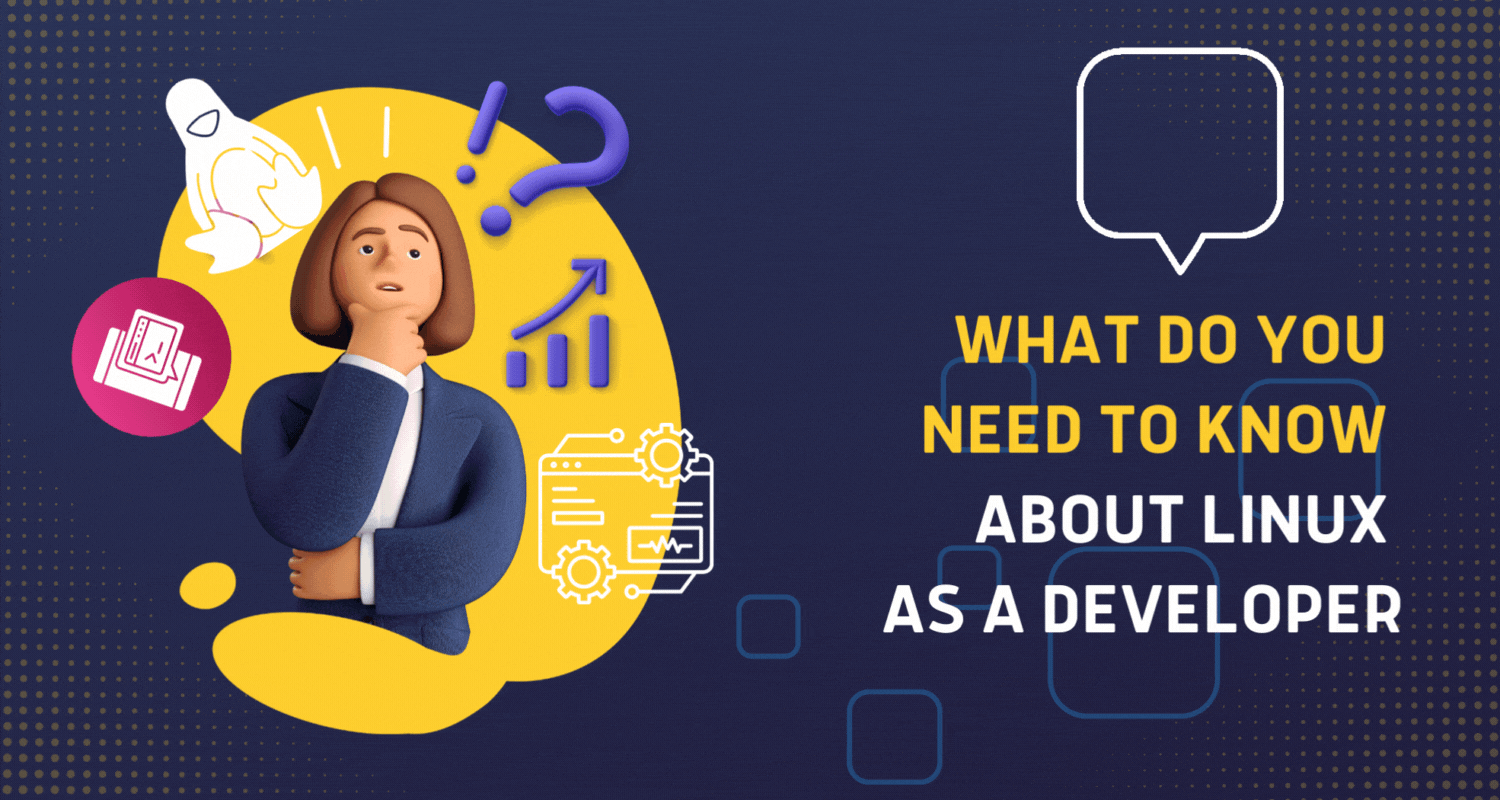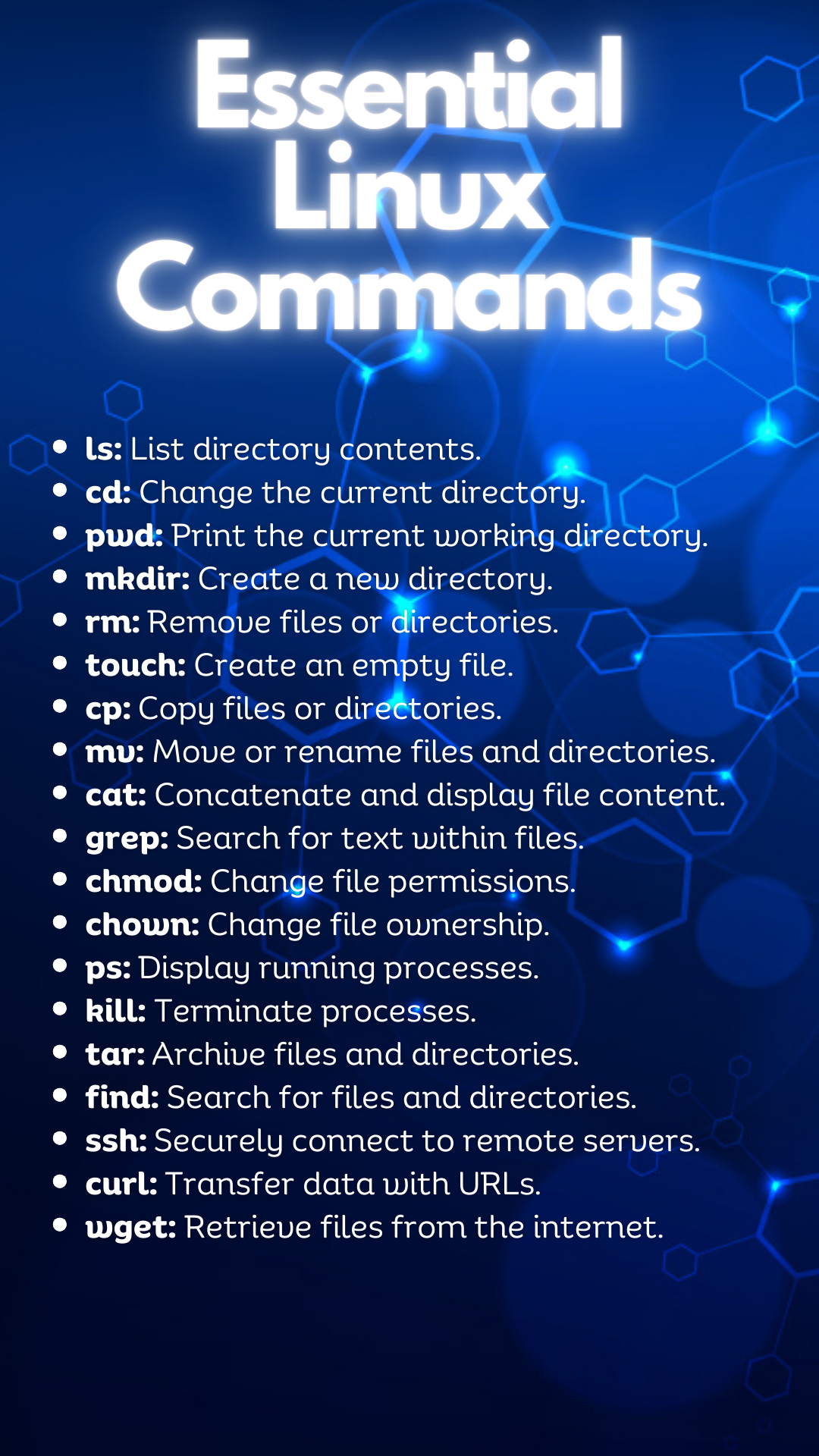What You Need to Know About Linux as a Developer
As a developer, it's essential to understand the various operating systems that are used to power your projects. One of the most popular operating systems used by developers is Linux. In this blog post, we'll go over everything you need to know about Linux as a developer.

Linux is an open-source operating system that has been gaining popularity among developers due to its versatility, security, and stability. Linux enables smooth and efficient development by providing access to thousands of free, open-source development tools. In this blog post, we'll go over everything you need to know to get started with Linux as a developer.
Linux for Development
If you're a developer, you've probably heard about Linux but might not understand its benefits. Here are a few advantages of using Linux for development:
👉 Linux is an open-source operating system that provides access to thousands of free, open-source software tools.
👉 Linux is highly stable, reliable, and secure because it's less likely to crash, freeze, or get infected by malware.
👉 The Linux command line is more powerful than other GUI-based operating systems like Windows and macOS. It allows developers to automate tasks, customize code, and run code with remarkable speed.
Differences Between Linux and Other Operating Systems
Here are a few key differences between Linux and other operating systems:
👉 Linux is open-source, which means that developers have access to its source code and can customize it to suit their needs.
👉 Linux uses a different file system (mostly Ext4) than other operating systems (mostly NTFS or APFS).
👉 Linux CLI is more powerful and flexible than the CLI utilities available in Windows or macOS.
Setting Up Linux
Here are the three key steps to setting up Linux on your workstation:
Choosing a Linux distribution
There are more than 100 free and open-source Linux distributions available for developers. Some of the most popular ones include Ubuntu, Debian, Fedora, and Arch Linux.
Installing Linux
Once you have picked a distribution, download the ISO image, create a bootable USB drive or DVD, and install it on your system. You can choose to install Linux alongside Windows or macOS or entirely replace them.
Getting started with the Linux command line
The Linux command-line interface (CLI) allows developers to interact with Linux via text commands. Linux CLI is known for its powerful features, speed, and flexibility.

Using Linux as a Development Environment
Linux provides an excellent development environment for a wide range of programming languages, including Python, Java, C++, and more. Here are a few tips to help you get started.
Development Tools on Linux
One of the advantages of Linux is the vast array of free development tools available. Some of the most popular development tools include, but are not limited to:
- Git - version control system
- VSCode - Integrated Development Environment (IDE)
- Docker - container management
- Node.js - JavaScript runtime
- Python - Python interpreter
Transitioning From Other Operating Systems to Linux
If you're used to working on Windows or macOS, moving to Linux can seem daunting. However, a few simple steps can make the transition much smoother, including:
- Using cross-platform development tools
- Familiarizing yourself with the Linux GUI
- Learning the essential Linux CLI commands
- Joining the Linux community
Running and Deploying Code on Linux
Linux can be used to run and deploy projects developed in a wide range of programming languages. After you've written your code, you can quickly test it or deploy it on a cloud server.
Troubleshooting Linux
As with any software, issues can arise when using Linux. Here are a few common issues developers face when using Linux for development:
- Driver issues
- Dependency issues
- Configuration issues
- Network connectivity issues
The good news is that there are many resources available to help you troubleshoot your Linux installation, including:
- Linux forums
- Stack Overflow
Conclusion
Linux provides an ideal development environment for developers. It offers exceptional performance, stability, and security, and the vast array of open-source tools ensures that developers have access to everything they need for their projects. By following the steps outlined, you'll be well on your way to starting your next project on Linux with confidence
Hi! I am Safoor Safdar a Senior SRE. Read More. Don't hesitate to reach out! You can find me on Linkedin, or simply drop me an email at me@safoorsafdar.com
